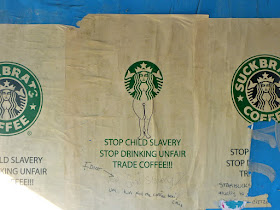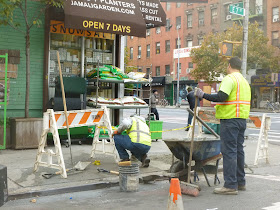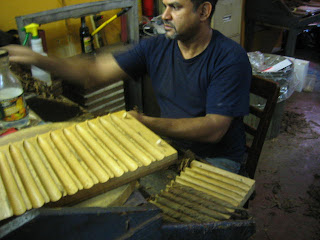VANISHING (for now)
After the announcement that
Starbucks will (maybe) take over Bleecker Bob's (then again,
not), here comes more bad news for record-store lovers and vinyl aficionados.
Rockit Scientist Records on St. Mark's Place is shuttering at the end of February.
It's another case of a landlord hiking rent.

Owner John Kioussis told me, "my lease is ending and i don't want to renew at the current rate, i asked for a rent reduction and was turned down.
While business wasn't great, it just isn't worth paying $8500 a month."
Kioussis hopes the shop will last through March. After they close, he plans to do mail order for a bit, then "I'll look to reopening sometime in the summer if i find something reasonable."

Opened in 1996, Rockit Scientist used to be on Carmine Street. In 2003, when it moved to St. Mark's Place, the
Times published a
long and loving tribute to the store, describing "why places like Rockit Scientist still exist in a retailing landscape marked by vast impersonal megastores and their online brethren."
"More broadly," they wrote, "it is why places like New York still exist, places where
clutter and congestion may not be mere inconveniences but the catalysts of random discovery or accidental innovation, where a store selling the most specialized merchandise can attract a large clientele, and where one can find a sense of community just by opening a door."
Today, with a
7-11 moving in next door, maybe the Rockit Scientist space will get a Subway--or a Starbucks. That's about all that can survive here now. So much for random discovery, accidental innovation, and community.

As Kioussis says on the shop's
Facebook page, independent record stores are "
hassle-free places to hang out, to talk rubbish fearlessly, to argue loudly without being asked to move on, to form bands, to see bands, to hand out flyers--even to not buy music. Indie record shops have something the major chains will never replicate no matter how many surveys and spreadsheets they employ: they are cool."
And so another piece of cool departs from St. Mark's Place.



















































